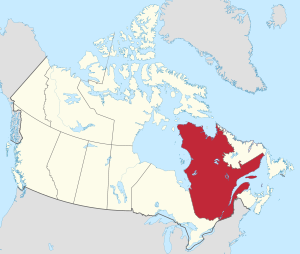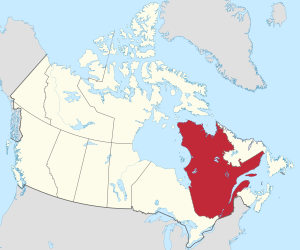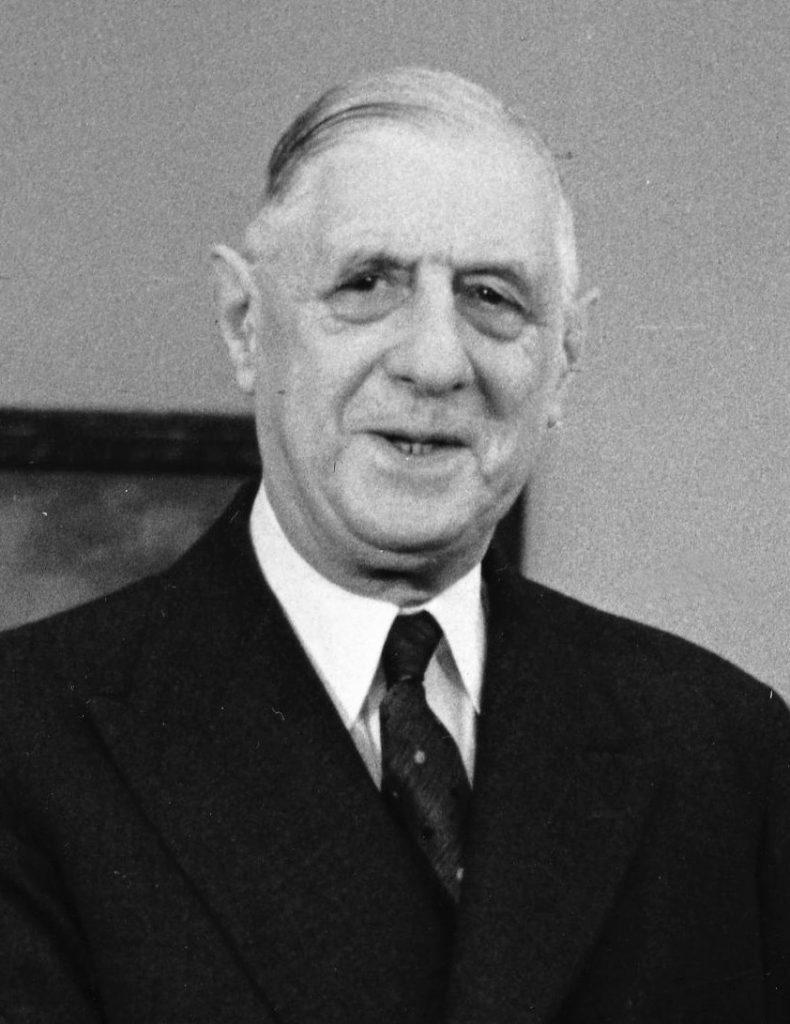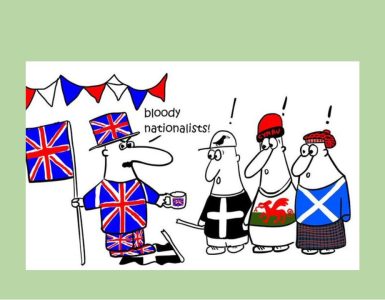Some more musings on my Unionist friend’s suggestions for IndyRef2….. See Scottish Referendum Voting Rights . Now I’m thinking about Quebec, and the voting eligibility in their referendum. And the Quebec result has got me wondering if a decision to split gives a right to secede. Apparently it doesn’t.
De Gaulle was stirring it in Quebec in 1967
Charles de Gaulle, the French President, was stirring independence sentiment in Quebec way back in 1967 during a visit to Montreal when he declared Vive Quebec Libre! in a public speech. The Canadian Prime Minster was not amused.
Quebec Independence Referendums
The first referendum wasn’t until 1980. The Quebecois voted to remain part of Canada with a majority of 60% to 40%. Pretty decisive. A second referendum was held in 1995. Again they voted to remain but this time by a majority of only 50.58% to 49.42%.
Well it was bad enough to have lost by 55% to 45% in Scotland in 2014. The Quebecois independence supporters must have been gutted at losing by less than one point.
So, as you can see, your suggestion about extending voting eligibility to include Scottish ex-pats, has got me thinking about Quebec and how they set up their referendum.
To vote in the referendum you had to be a registered Quebec voter. To register in Quebec today you need to be 18, be a Canadian Citizen, and either a resident in Quebec of at six months standing, or have been running a business in Quebec for at least a year. Quebecois who were living elsewhere could not vote. So that’s another example where ex-pats were not eligible to vote.
So that’s nul points to you so far in our tussle about eligible voting rights. Residency is a definite requirement.

If they’d won, could Quebec have seceded unilaterally?
The referendums were set up by the National Assembly of Quebec. So clearly they had the authority to do that. But had the vote been won, did they have the legal authority to secede from Canada unilaterally?
That question was put to the Canadian Supreme Court by the Canadian Cabinet & Prime Minister Jean Chrètien. They submitted a request for an advisory opinion on the following three specific questions:[1] The Court’s detailed analysis and decision is here. Here is the short version of their ruling:
The Canadian Supreme Court Decision
First question: Can Quebec secede unilaterally?
They stated that, under the Canadian Constitution (which Quebec has been part of since its inception), unilateral secession was not legal.
However, if a referendum decides in favour of independence, the rest of Canada “would have no basis to deny the right of the government of Quebec to pursue secession.”
Negotiations would have to follow to define the terms under which Quebec would gain independence, should it maintain that goal.
Second question: Is there a right to self‑determination under international law that would give Quebec the right to effect the secession of Quebec from Canada unilaterally?
They gave the opinion that the international law on secession was not applicable to the situation of Quebec. The court pointed out that international law “does not specifically grant component parts of sovereign states the legal right to secede unilaterally from their ‘parent’ state.”
Third Question: Which would take precedence, International Law or Canadian Law?
Since the court saw no conflict between Canadian law and international law on the question (neither would allow Quebec to secede unilaterally), it considered it unnecessary to answer the question.
The Quebec Government was pleased with the ruling, see here. And the Federal Government was also pleased with it. Though no doubt for different reasons. See the Full Ruling here.
Anything relevant in that for Scotland?
According to Wikipedia (here) that Canadian Supreme Court decision is regarded as a model discussion in international law. For questions of separation between national political entities, particularly in relation to the results of a referendum, it’s the go-to ruling. So is there anything in it we should pay attention to?
Well first thing. Note that the Quebec Government had the legal authority to call the referendum. They didn’t have to faff about asking for a Section 30 Order, etc.
Second thing. The Supreme Court ruled that Quebec had no legal authority to declare UDI after a Yes vote. But it also said that there was a responsibility on the Federal Government to engage in negotiations if such a vote happened. Canada is a formal Federation so there is no direct comparision to Scotland in the UK. Still, it sounds helpful.
The third thing and this is definitely something for us to think about. The court pointed out that:
International Law does not specifically grant component parts of sovereign states the legal right to secede unilaterally from their ‘parent’ state.
WikiPedia Secession of Quebec
The Right to Secede is not so Universal a Right as we might think… 🤨
In the Canadian opinion, the right to secede was meant for peoples under a colonial rule or foreign occupation. So long as a people has the meaningful exercise of its right to self-determination within an existing nation state, there is no right to secede unilaterally. The Court referred to numerous instances of Quebecers holding high positions in Canada, and in its success in pursuing its aims both in Canada and internationally.
It’s easy to see the parallels for Scotland. There have been plenty of Scots holding position of high authority in UK and internationally. We’ve had Scottish PMs in Westminster. We have our own Parliament in Edinburgh. And the 1707 Treaty of Union guarantees in perpetuity our distinctive education, legal and church systems.
So for those independence supporters who cry “Let’s just declare UDI”. Or “We’re a colony.” Or “The UN guarantees a people’s right to self-determination.” That’s not going to cut it.
Folks, we really need to read the small print.






Although International law ‘doesn’t specifically grant the right to unilaterally leave a Union/Federation, by not ‘specifically granting that right’ it also ‘specifically doesn’t prohibit that right’s. As for Scotland, we are not in a ‘Federation ‘, ‘Confederation’ or any other sort of loose ‘association’, we co-signatories of an Internationally recognised Treaty, which has been broken from the outset, by the larger signatory, which basically negates the Treaty. So any pontifications from a Foreign Court, albiet a court in a former British Colony, has no bearing on Scotland, or England for that Matter, but International Law has, and it has been broken, on more than one occasion by the English Signatories to the Treaty. Si Scotland needs no ones ‘permission’ to remove themselves from the Union, if that is the Democratic wish of the Scottish people, who are Sovereign.
As far as my, admittedly limited, reading goes I think you’re right: International Law neither prohibits nor does it grant the right to declare UDI. And certainly Scotland’s constitutional situation is different from Quebec. But it’s a bit unfair to describe the Canadian Supreme Court as pontificating if you mean by that “speaking or behaving in a pompous or dogmatic manner”. It was asked to give its considered legal opinion and it did its job within its Canadian terms of reference. And it’s still relevant now because that opinion is still regarded as a very good one and is used as a reference point for constitutional questions in other arenas. Being a reference point doesn’t make it a definitive or fixed in all other arenas, it’s just a good point for a debate to commence.
You say “Scotland needs no ones ‘permission’ to remove themselves from the Union”. But the more important question is who will recognise us if we do that? And on what basis would they recognise us? or not recognise us? Without international recognition we’d be in shit creek.
The Canadian opinion did state – unequivocally – that in the event of a Yes vote to leave the Canadian Federation, the Canadian Federal Government was obliged to negotiate a way to enable that decision. If UKGov refused to accept a Yes vote in Scotland, then ScotGov would presumably refer to the Canadian Court’s opinion to back us up in any subsequent actions, including unilateral actions, by ScotGov.